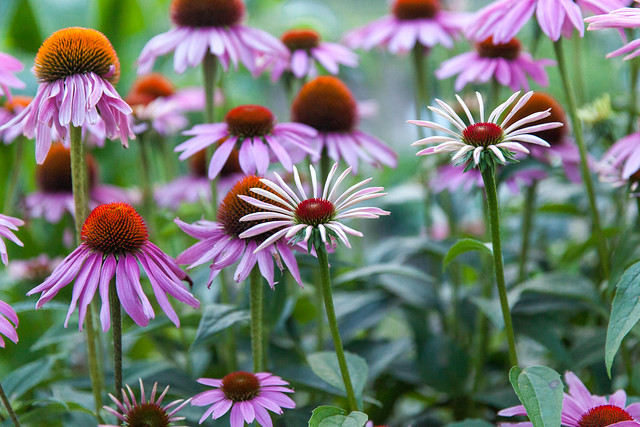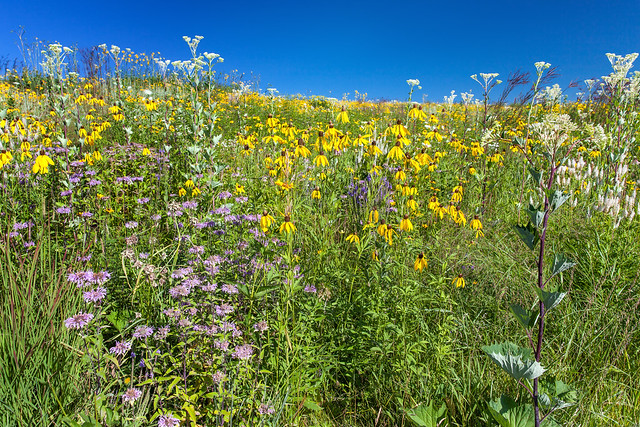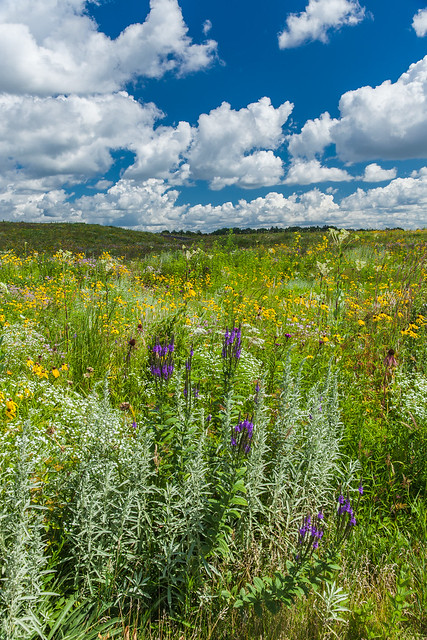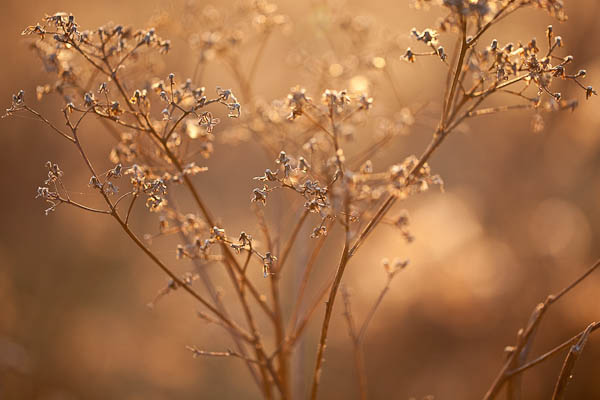“What we do see depends mainly on what we look for. … In the same field the farmer will notice the crop, the geologists the fossils, botanists the flowers, artists the colouring, sportmen the cover for the game. Though we may all look at the same things, it does not all follow that we should see them.” ~ John Lubbock
Purple coneflowers. One of my favorites. Since it will bloom from June through September, there are usually pockets of these purple beauties in the prairie during any summer visit. My favorite part is the spiny center, that red rusty cone.
The species is even named for its distinctive center – Echinacea means hedgehog in Greek. Evidently the center disk looked like a hedgehog to the plant naming folks way back when.


















